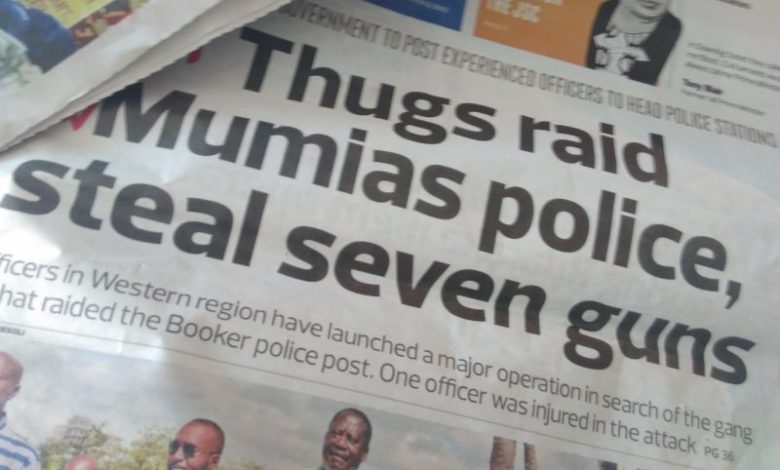Asking Questions About Police Malpractice

How easy is it in Kenya for a criminal to fetch weapons from the state? Seven police rifles and other ammunition were robbed last week from a police post in Mumias. Radio, TV stations, and newspapers reported widely on the robbery as well as on the brutal police raids that followed and – as reported – have badly damaged people’s lives and property.
But why don’t we see the follow-up questions being asked? Did we miss something out? After all, it was very easy for the thugs to fetch the weapons from the police post at the sugar factory.
Why and how was this possible? What are the official rules and guidelines for keeping guns and safeguarding weapons in the armory? As Kenyan citizens, we are entitled to see these rules.
Follow-up questions about Kenyan Police Rules
According to news reports, there is a new Kenya police manual of operations in place since two years and ten months. Were its rules followed? Who is in charge of making sure those weapons cannot be stolen that easily?
The media has targeted just the fact that only one police officer was present during the robbery and that the officer was unexperienced. But nobody should have had such easy access to six additional guns and a lot of ammunition – whether experienced or not.
Shilling Notes are guarded better than Rifles
Let us make a simple guess even before seeing the official rules: There must be an armory at the police station. This armory should not be accessible by just one officer with one key so that even pushing or torturing this officer would not help in robbing weapons.
At least this is what common sense tells us – and common sense is in many cases what goes into the writing of rules. Every bank seems to guard its stock of paper bills better than the Kenyan police guard its weapons. In addition, it is not just one police officer or unfavorable circumstances that are to be blamed in the Mumias stolen rifles case.
The questions go to the higher echelons of the Kenyan police force. Moreover, they are more detailed. Let us ask them and put them into task.